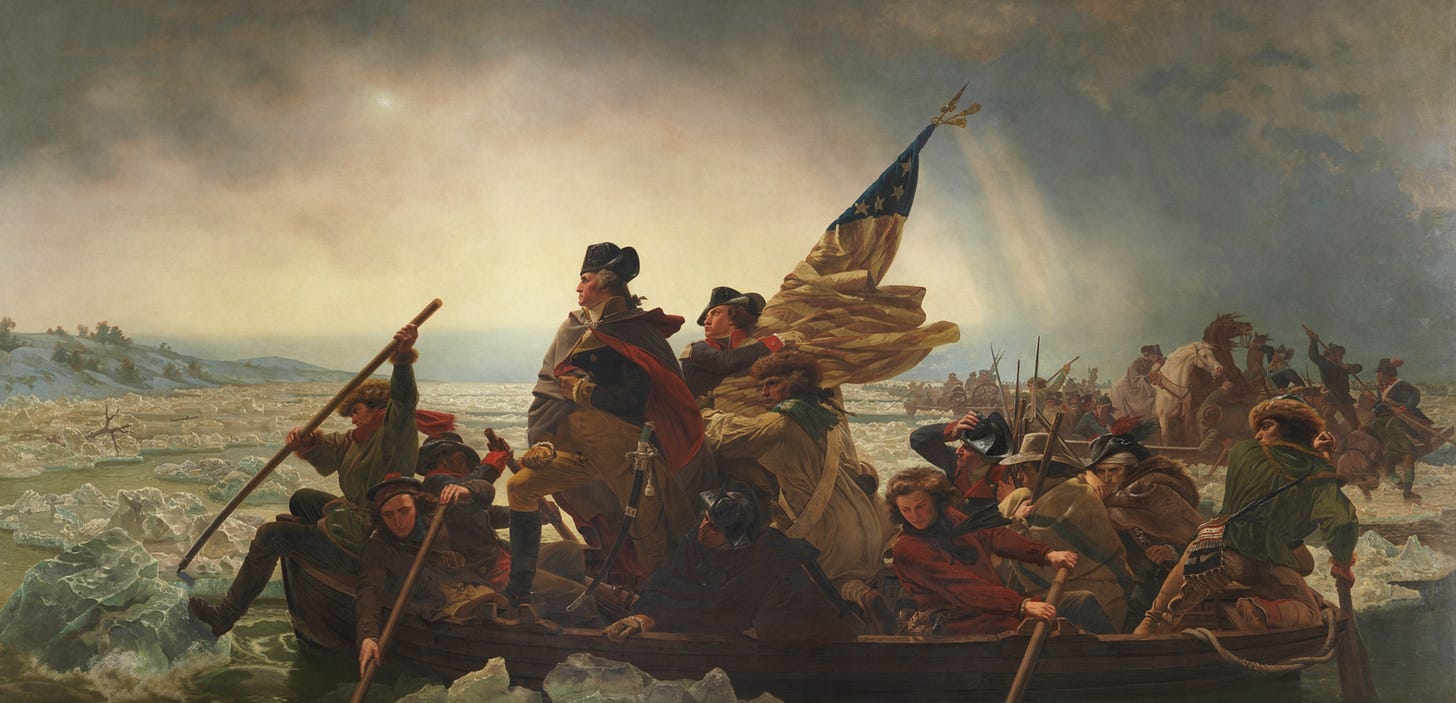On this date, December 19, 1776, an essay written by Thomas Paine was published in the Pennsylvania Journal. Paine was an aide to General Nathanael Greene in the Continental Army which had taken control of New York just in time for the signing of the Declaration of Independence on July 4. But by late August, a reinforced British army ousted the Americans and George Washington led his troops in a strategic withdrawal, making camp in the fields of Pennsylvania.
Morale was low and desertions were high. Many soldiers planned to return home when their enlistments were up at the end of the year and the cause of the American Revolution hung by a thread.
After reading Paine’s essay, titled The American Crisis, Washington ordered his officers to read it to the soldiers of the Continental Army on December 23. Here’s how it begins:
“These are the times that try men’s souls. The summer soldier and the sunshine patriot will, in this crisis, shrink from the service of his country; but he that stands by it now deserves the love and thanks of man and woman. Tyranny, like hell, is not easily conquered; yet we have this consolation with us, that the harder the conflict, the more glorious the triumph. What we obtain too cheap, we esteem too lightly…if we believe the power of hell to be limited, we must likewise believe that their agents are under some providential control…”
Two days later, in the bitter cold of Christmas Day evening, Washington led his troops in one of the most audacious maneuvers in the history of war. After crossing the icy Delaware River, they attacked the unsuspecting Hessian troops at Trenton, New Jersey and won a resounding victory.
The Battle of Trenton proved to be one of the most pivotal battles of all time. In his best-selling book, 1776, David McCullough, the Pulitzer Prize winning author, writes,
“From the last week of August to the last week of December, the year 1776 had been as dark a time as those devoted to the American cause had ever known––indeed, as dark a time as any in the history of the country. And suddenly, miraculously it seemed, that had changed because of a small band of determined men and their leader. A century later, Sir Otto Trevelyan would write in a classic study of the American Revolution, “It may be doubted whether so small a number ever employed so short a space of time with greater and more lasting effects upon the history of the world.”
[Emanuel Leutze’s “Washington Crossing the Delaware,” Metropolitan Museum of Art, New York.]
Paine adamantly denied the miracles, deity, and resurrection of Christ as a Deist and Washington failed to give future Christians much assurance of his faith in Christ alone. But both men possessed at least enough truth to acknowledge the providence of God. God “changes times and seasons; he removes kings and sets up kings” (Daniel 2:21). Indeed, God “makes nations great, and he destroys them; he enlarges nations, and leads them away (Job 12:23).
The week before Christmas in 1776, the United States was less than a year old, but it was a breath away from extinction. In the providence and patience of a merciful God, we’re still here 248 years later and our leaders would be wise to remember this timeless truth: “Righteousness exalts a nation, but sin is a reproach to any people” (Proverbs 14:34). God doesn’t need us. But we desperately need him.





By His providence, God has blessed America beyond measure. Would that our leaders realize His sovereignty, grace, and authority and humble themselves before Him, giving Him thanks and praise!!
Your article is right on Steve. Thank you!!
Great encouragement for our time and our lives!!